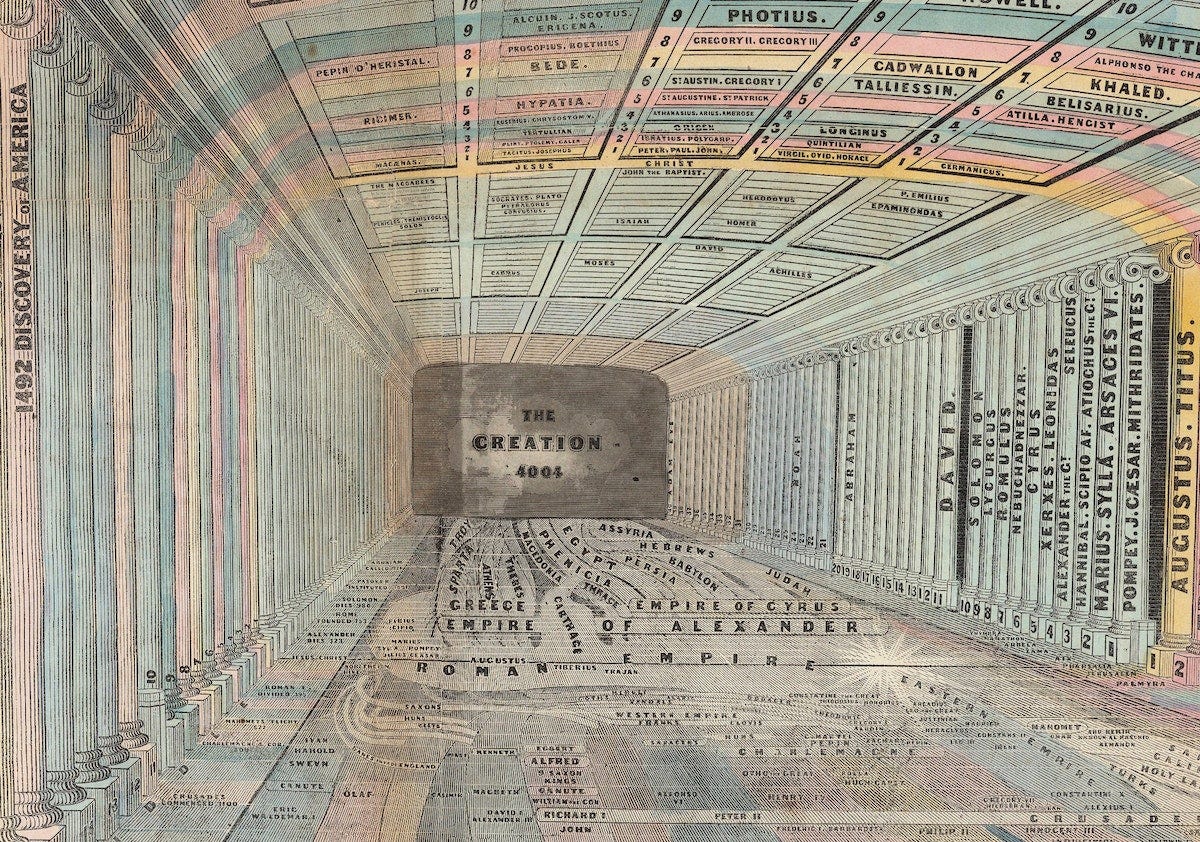I don’t bear the burden of depression, but melancholy seems to have taken root at a young age. When I was a child of five or six, my mother gave me a nickel to walk to the Victory market in Dryden (near our home in upstate New York) and buy a fudgsicle. I vividly remember sitting on the curb with my dripping treat as the sad recognition took hold of me that in five minutes those rare and delightful sensations would be in the past. To this day that memory frequently comes to mind and too often my present joys are still tinged with the knowledge that they are already in the process of slipping into their irretrievable pastness. Such feelings are known to all at one time or another as our minds paint the past in a register of emotion ranging from pain to nostalgia to delighted recollection.
Latter-day Saints tend to envision eternity as the flow of endless time, unthreatened by the dark abyss of death. Such a view is not universal in the Christian world—which tends to incline toward an escape from time into eternity, rather than passage into an endless time, “sempiternity.” That distinction can be traced in varying degrees throughout Christian history with enormous implications for what human futures may look like.
“God alone is without growth,” wrote the Catholic bishop Ambrose in the fourth century.1 Angels and spirits were not frozen into unyielding stasis. In the same era, the influential Jerome (first translator of the Bible into Latin) agreed that “In the world to come, . . . each entity will rise or fall from one step of advancement and honour to another, some ascending and some descending.”2
At the same moment, a contrary view was being promoted by Augustine. He referred to postmortality as “the country which is above, where no one dies, since no one is born, where no one now progresses and no one fails.”3 In this as in other matters, Augustine’s views were invoked many centuries later to give impetus to Reformation impulses. The Middle Ages had witnessed a cult of relics, the practice of masses for the dead, and the sale of indulgences. All were problematic for abuses that grew up around those practices—but they rested upon a fundamental hypothesis: the fate of souls was not definitively determined at the moment of death. Papal or priestly authority, departed saints and loved ones, and those still living who were deeply invested in the dead, all could operate to spur the progress and betterment of those who had passed beyond the veil. Here as elsewhere, Restoration teachings would reassert the Catholic doctrine that repentance and purification could continue beyond the grave, and preach the efficacy of love to pierce the boundaries of life and death.
Endless time, with endless opportunities for novelty, adventure, growth, is one of the Restoration’s most appealing features. Toni Morrison’s heroine Pilate says with her dying breath, “I wish I'd a knowed more people. I would of loved 'em all. If I'd a knowed more, I would a loved more.” An infinity of friends await us, all more than worthy to be met and loved. “A book is an ice ax to break the frozen sea inside us,” said Franz Kafka. How many moments of awakening to a new idea are yet in store? How many rapturous epiphanies are held in reserve in books not yet written, let alone read? How moving and varied are those potential vicarious immersions in lives we never lived? The most splendid death soliloquy in sci-fi history is spoken by Rutger Hauer: “I've seen things you people wouldn't believe. Attack ships on fire off the shoulder of Orion. I watched C-beams glitter in the dark near the Tannhäuser Gate. All those moments will be lost in time, like tears in rain.” What inconceivable first-time sights will an expanding universe yield up in our unbounded future?
To exist at all may only be possible as beings in time, moving through time, leaving a train of infinite moments behind us. If that is true, the looming pastness of all experiences will still hover over every present moment that unfolds. Pastness is the price we may always pay for doors that continually open to new moments. Perhaps, in this case, mortality is an education in more ways than we realized. Perhaps we must be schooled in the best ways to assimilate our past—to incorporate its lessons, accept its sorrows, and endow it with meaning that Christ gives us the power to shape.
To receive each new Terryl Givens column by email, first subscribe and then click here and select "Wrestling with Angels."
Saint Ambrose, Exposition of the Christian Faith, Book IV, Chapter 1.
Jerome, Apology for Himself Against the Books of Rufinus.
Augustine, On John.






